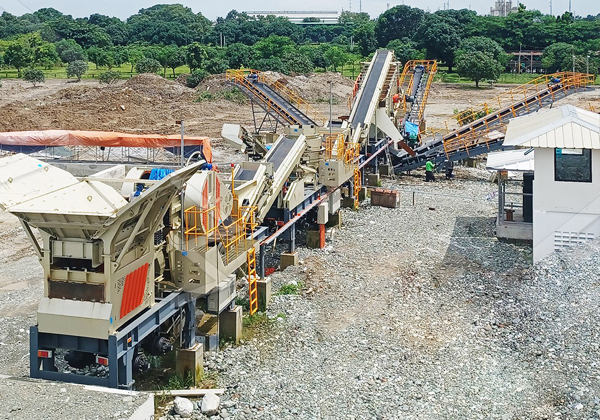Mobile crushers are essential in the mineral processing industry for their ability to enhance efficiency and flexibility in processing operations. These machines are designed to crush rocks and ores into smaller, more manageable sizes, enabling more efficient handling and processing. Here’s a comprehensive overview of their role, benefits, and types.
Overview
Mobile crushers are versatile and can be used for a variety of applications, including primary, secondary, and tertiary crushing. They are equipped with powerful crushers that can handle a range of minerals such as limestone, granite, basalt, and ore. The mobility of these crushers allows them to be transported directly to the mining site, eliminating the need for transporting raw materials to a stationary crusher.

Types of Mobile Crushers
- Mobile Jaw Crushers: These are designed for primary crushing and are ideal for handling large, hard materials. They feature a large crushing chamber and a hydraulic drive, which provides high crushing power and efficiency. Mobile jaw crushers are widely used in both mining and recycling applications.
- Mobile Impact Crushers: Known for their versatility, these crushers use impact force to break down materials. They are ideal for secondary and tertiary crushing and are particularly effective for processing softer materials. Mobile impact crushers can be fitted with various types of impactors and screens, making them adaptable to different processing needs.
- Mobile Cone Crushers: These are designed for secondary and tertiary crushing, using a cone-shaped crushing chamber to crush materials. They are suitable for handling harder materials and offer high reduction ratios. Mobile cone crushers are often used in combination with other crushers for a complete processing solution.
- Mobile Screeners: While not crushers themselves, mobile screeners are often used alongside crushers to separate and sort crushed materials. They help in removing oversized materials and ensuring that the output meets the required specifications.
Benefits
- Flexibility and Mobility: One of the primary advantages of mobile crushers is their ability to move to different locations as needed. This flexibility allows for efficient processing at various stages of the mining operation and reduces the need for transporting materials over long distances.
- Cost Efficiency: By eliminating the need for fixed infrastructure and reducing transportation costs, mobile crushers can significantly lower overall operational expenses. Their ability to process materials on-site also reduces the environmental impact associated with transportation.
- Reduced Downtime: Mobile crushers can be quickly set up and put into operation, minimizing downtime and maximizing productivity. Their compact design allows for rapid deployment and easy relocation.
- Versatility: Mobile crushers are capable of processing a wide range of materials and can be adapted to different processing needs. This versatility makes them suitable for various applications, including mining, construction, and demolition.
- Improved Safety: Modern mobile crushers are equipped with advanced safety features, including automated controls and monitoring systems. These features enhance operational safety and reduce the risk of accidents and equipment damage.
Applications in Mineral Processing
Mobile crushers are used in various mineral processing applications, including:
- Ore Processing: They are employed to crush and process ore materials, making them suitable for different types of minerals, including iron ore, copper, gold, and coal.
- Aggregate Production: Mobile crushers are used to produce aggregates for construction and road building. They can process materials such as sand, gravel, and crushed stone.
- Recycling: They play a role in recycling applications by processing construction and demolition waste, turning it into reusable materials.
Mobile crushers have revolutionized mineral processing by offering flexibility, efficiency, and cost savings. Their ability to operate on-site and adapt to different conditions makes them invaluable in modern mining operations. With advancements in technology, these machines continue to evolve, improving their performance and environmental sustainability.
